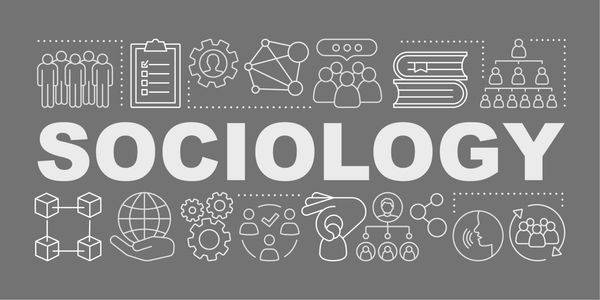Table of contents
For those who have sociology optional I’ve attached my notes in this post. You can use them as a framework for how to make notes but let’s begin with some disclaimers.
Disclaimers
- Optional requires honour's degree level of understanding. It takes a good 3/4 years to complete a bachelor’s degree and you, brave aspirant, will be covering this in the space of a few months so it is safe to say that you should be ready for a steep learning curve.
- Just reading notes will not cut it. You will need to SPEND TIME with the subject. Think of it as subject immersion. With GS you don’t really need theoretical understanding of the topics but with your optional, you will need to be well versed with theory. Not only that you will need to understand how various theoretical strands interact and that only comes with time. So be prepared to spend quality time with thinkers.
- Guidance can make a lot of difference. While guidance isn’t strictly necessary for GS it can be crucial for your optional, especially if its not your area of specialisation. For example, I’m an engineering graduate who took sociology as an optional. I had a tough time in the beginning to get in the right mindset (I was used to writing blunt answers) but with the right guidance and practice you can get there.
Coming to the book list and sources. I’ll be covering them separately for paper 1 and paper 2 but please keep in mind that you can always quote paper 1 thinker and theories in paper 2 and vice versa.
Join Comprehensive Sociology Course
- KCS sir (ex-IAS) as your faculty.
- Cover the syllabus end to end in 4 months.
- Weekly answer writing sessions to help you stay exam focused.
- Direct feedback that helps you improve.
Paper 1
Essential Sociology by Nitin Sangwan
This book can form the base for your sociology optional preparation. However, by itself it's not adequate to cover the optional fully. It has some good diagrams and figures which you can use to supplement your answers.
The areas where you feel that you still have doubts, refer to the blue book.
Harlambos & Holborn (Big blue book)
Selected topics as per syllabus. For example in the chapter on stratification you need to cover the Marxian, Weberian and Functionalist perspectives. Anything else you do will be an add on.
You can refer to these images to get a comprehensive list of topics needed to be covered in each chapter.
Sociological Theory by George Ritzer
If you can cover thinkers well, half of your effort towards completing your optional is done. This book gives a detailed understanding of all major thinkers in Paper 1.
IGNOU BA/MA material as needed
For value addition. If there’s anything missing in your notes for paper 1, you can pick up the relevant IGNOU material and fill in the gaps. Also good for developing an understanding of topics that you may find hard.
Current affairs for examples
For example: you can use the current farmer movement as an example for substantiating your stand in questions on social movements. In Neil Smelsor’s structural strain theory he says that the career of a social movement is determined by the exercise of controls by the state and we have seen that in action with these current protests. So always be on the lookout for current examples that you can use, it adds value to your answers.
Paper 2
BK Nagla book for thinkers
Only book which has all major India thinkers covered. I’d recommend going beyond the thinkers listed in the syllabus and covering others like Iravati Karwe, Yogendra Singh, BR Ambedkar (who is surprisingly missing from the syllabus despite being found frequently in Mains questions) and any others that catch your fancy.
Essential Sociology by Nitin Sangwan
This book can form the base for your sociology optional preparation. However, by itself it's not adequate to cover the optional fully. It has some good diagrams and figures which you can use to supplement your answers.
The areas where you feel that you still have doubts, refer to the blue book.
IGNOU BA/MA material
Again this material is to be used solely for filling gaps in your knowledge left after covering all the above. The syllabus and PYQs should be your best guide for assessing what’s missing and what more needs to be done.
EPW Articles as needed
This is strictly value addition. You can look for articles on the current perspectives on caste, family, kinship etc based on requirements.
Current affairs for examples
Much like paper 1, use current affairs to substantiate your answers and make them stand out.
Compilations
A compilation of sociological thinkers and studies that can be used as needed in Sociology Mains paper 1 and paper 2.
What else?
I like reading so I read books by AR Desai, Yogendra Singh, MN Srinivas and Andre Beteille in my free time during my earlier attempts (2016/17). Whatever I liked I generally included in my notes but if you ask me I won’t be able to point out exactly what’s from where.
A lot of EPW articles to get a feel of the work being done by sociologists because I wasted a lot of time during my earlier attempts thinking this would add value, but I’m doubtful about the actual impact.
Papers by RK Merton just for fun. I liked Merton and Weber most among all the thinkers and in my free time often found myself reading their actual works because it seemed fascinating. Not recommended for exam purposes. Recommended for gaining vast knowledge.
Previous Post
